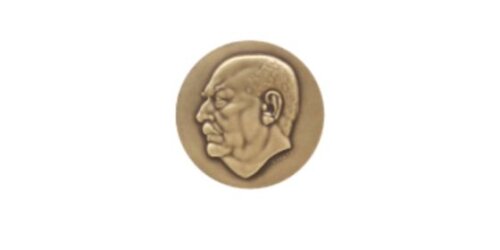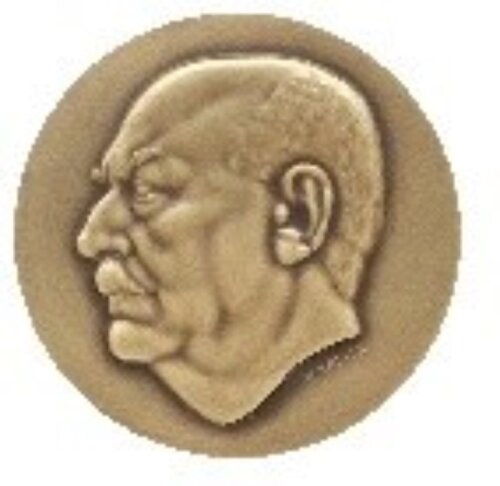International Collen-Francqui Professor: Philippe De Wals
Final symposium: Off-label use of vaccines saves lives and money
Place: University Foundation, Room D
Egmontstraat 11 rue d’Egmont - 1000 Brussels
Telephone : 02/545 04 00
Mail: fu.us@universityfoundation.be
Website: https://www.fondationuniversitaire.be/en
Time: Thursday, February 2, 2023 from 17h00 to 20h00
Objectives: The goal of this symposium is the reach a consensus on the usefulness of off-label use of vaccines in publicly-funded immunizations programs in Belgium and to generate a momentum towards this achievement within the scientific, public health and health professional community in the country.
Program
- 16h30-17h00: Welcome – Coffee
- 17h00-17h10: Introduction and objectives: Philippe Beutels, Antwerpen Unversiteit.
- 17h10-17h20: Presentation of participants: Round the table.
- 17h20-17h50: Introductionary lecture: Philippe De Wals, Laval University.
- 17h50-18h20: Off-license use of vaccines in Belgium: Successes and failures: Pierre Van Damme, Antwerpen Unversiteit.
- 18h20-18h30: Break
- 18h30-19h30: Obstacles and solutions: Each participants
- 19h30-19h50: Summary and recommendations: Maria-Eugenia Espinoza Moya.
- 19h50-20h00: Next steps and concluding remarks: Philippe Beutels & Pierre Van damme, Antwerpen Unversiteit.
- 20h00-21h00: Cocktail and sandwiches
Rationale
Vaccines are authorized by regulatory agencies on the basis of data submitted by pharmaceutical companies. Indications approved by regulatory agencies are generally in accordance with those proposed by pharmaceutical companies and are rarely enlarged. One of the problems is that pharmaceutical companies are very prudent regarding requested indications in order to avoid legal actions. Another issue is that immunization schedules tested in Phase 2/3 trials are often designed to maximize short-term protection regardless of other considerations. Also, immunization schedules combining different vaccines from different companies are never submitted for authorizations. In Belgium, physicians have the freedom to prescribe vaccines off-label but they have to take responsibility in the event of adverse consequences. In contrast, expert committees and public health agencies are generally bound to the authorizations received. In several jurisdictions as in the UK and Quebec off-label use of vaccines is frequently implemented in publicly-funded immunization programs. Off-label covers recommendations for use in categories of persons or age-groups not in the authorization list, unauthorized intervals between doses and unauthorized number of doses or dosage, mixing of different vaccines, or unauthorized route of administration. Examples in which off-label use of vaccine has been demonstrated effective and efficient are many. In England, it was estimated that delaying the interval between the first and second COVID-19 vaccine doses from 3- to 12-weeks prevented 64,000 COVID-19 hospital admissions and 9,400 deaths between December 2020 and September 2021. In Quebec, the mixed 2 PCV10 + 1 PCV13 schedule for the immunization of children against pneumococcal diseases is associated with a saving of $ 4 million per year compared with a similarly effective 2+1 PCV13 schedule. What is possible in the UK and Quebec is certainly possible in Belgium but this requires an in-depth analysis on how to bypass or accommodate administrative, legal and political obstacles. This also requires a large consensus among actors within the scientific, public health and health professional community in the country.
Organizers
- Philippe Beutels, Centre for Health Economics Research & Modelling Infectious Diseases (CHERMID), Antwerpen Universiteit.
- Pierre Van Damme, Centrum voor Evaluatie van Vaccinaties (CEV), Antwerpen Unversiteit
- Philippe De Wals, Department of Social and Preventive Medicine, Laval University, awardee of the 2018-2019 Collen-Francqui-Antwerpen Universiteit International Professorship.
Scientific support
- Maria-Eugenia Espinoza Moya, Consultant Health Policy Research, Quebec City, Canada
Language
Presentations and discussions will be in English
Publication
The proceedings of the symposium including recommendations will be published as a report (TBD).
Financial support
Antwerpen Universiteit through the 2018-2019 Collen-Francqui International Professorship grant.
In samenwerking met Fondation Francqui-Stichting.

Seminar - Vaccine hesitancy: a European Perspective (Professor Philippe De Wals)
- Wednesday 9 November at 5:00 pm
- Location: University of Antwerp - Campus Drie Eiken - Building Q - Promotiezaal - Universiteitsplein 1, 2610 Wilrijk
Programme
- 5:00 pm - 5:20 pm: “Vaccine Confidence Project: recent data in EU 27 countries” – Prof. Heidi Larson
- 5:20 pm - 5:40 pm: “Vaccine confidence and education in healthcare providers” - Greet Hendrickx
- 5:40 pm - 6 pm: “The role of healthcare providers’ communication in increasing vaccine confidence” - Aurélie de Waele
- 6:00 pm - 6:20 pm: “Determinants of stated willingness to be vaccinated and of vaccination coverage in high income countries” – Prof. Philippe Beutels
- 6:20 pm - 6:40 pm: “Strategic vaccine communication in a polarized society” – Prof Karolien Poels
- 6:40 pm - 7:00 pm:”Antivax: the politization of marginal phenomenon” – Prof Philippe De Wals
- 7:00 pm - 7:20 pm: Panel Discussion
Inaugural lecture: Factors shaping immunization programs: the role of experts and of contextual factors

Tuesday 24 May at 6 p.m.
Location
University of Antwerp - Campus Drie Eiken
Building Q – Promotiezaal
Universiteitsplein 1, 2610 Wilrijk
Programme
- Welcome by Professor Benedicte De Winter, Vice-Dean Faculty of Medicine and Health Sciences University of Antwerp
- Introduction of the Francqui Chair by Professor Herman Van Goethem, Rector University of Antwerp
- Laudation by Professor Pierre Van Damme and Professor Philippe Beutels
- Inaugural lecture by Professor Philippe De Wals: Factors shaping immunization programs: the role of experts and of contextual factors
- Reception
Registration
The inaugural lecture is free of charge but registration via the registration form is mandatory.
More online lectures
-
Information systems for the evaluation of immunisation programs: contrasting the Quebec and Belgian experience
Tuesday 31 May 2022
4.30 p.m. - 6 p.m. - Vaccine confidence and hesitancy: typology, frequency, causes and possible solutions
Thursday 2 June
4.30 p.m - 6 p.m.
The online lectures are free of charge but registration via the registration form is mandatory.
(You will receive the link to the live stream by e-mail a few days before the lecture.)
Registrations are closed. Last-minute registerers can still receive the link by sending an e-mail to communicatie.ggw@uantwerpen.be.
About Professor Philippe De Wals
Professor De Wals gained his Medical Degree and a Doctorate in Public Health in his home country of Belgium, at the Louvain Catholic University. His early academic and professional career combined epidemiology research studies at the School of Public Health at the Louvain Catholic University with the practice of general medicine. Between 1980 and 2000 he worked as an epidemiologist for EUROCAT, a European network of population-based registries for the epidemiologic surveillance of congenital anomalies. In 1990, he moved to Canada and became the Head of the Department of Community Health Sciences at the University of Sherbrooke. In 1997, he was appointed visiting Professor at the School of Public Health at the University of North Carolina in Chapel Hill, USA. In 2002, he became Head of the Department of Social and preventive medicine at Laval University, Quebec City, until 2010. He retired from Laval University in 2019 and remains associated-professor at Sherbrooke and Laval University and emeritus professor at the Louvain Catholic University.
Professor De Wals’ research is centered on the epidemiology of infectious diseases, reproductive abnormalities, and the assessment of health services and public health programs and policies. He is the author of 200 published articles in scientific journals and has contributed several chapters to textbooks. Currently, Professor De Wals is a member of research centers at the Quebec University Hospital, the Sherbrooke University Hospital and the Quebec Heart and Lung University Institute. He also serves as medical advisor to the Quebec National Institute of Public Health.
In 1990, Professor De Wals was awarded the Jean Van Beneden Prize in recognition of his excellent work in the public health field. In 2005, he was elected to the Royal Academy of Medicine of Belgium. He was awarded the price for excellence of the Quebec Community Health Specialists Association in 2007. In 2020, he was the awardee of the Collen-Francqui International Professorship at Antwerp University.

About the International Francqui Professor
Each year, the Francqui Foundation awards three International Francqui Professor of Chairs, which should allow the stay of a foreign scientist in Belgium for an uninterrupted period of three to six months. The distribution of these three chairs is as follows: one for the Exact Sciences, one for the Human Sciences and one for the Biological and Medical Sciences.